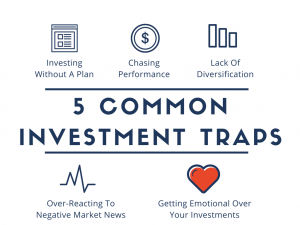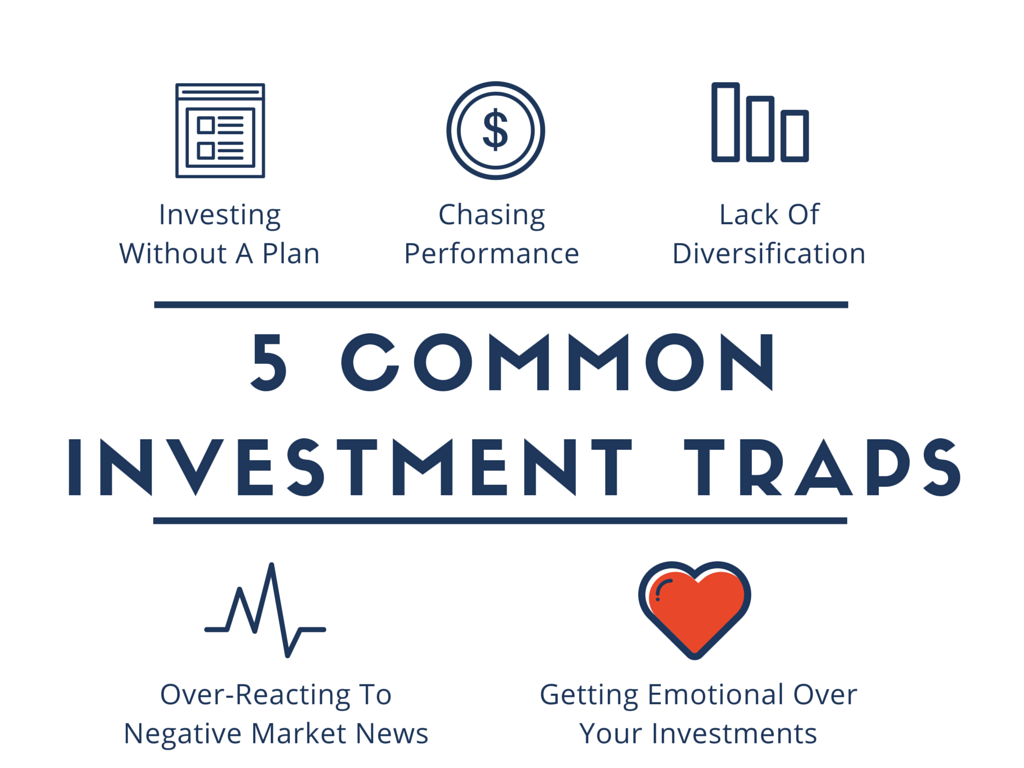When it comes to investing there is no fool-proof way to get it right every time. But you can be a better investor by avoiding some common mistakes.
The simple fact is, there is no right or wrong – at least not until you have the benefit of hindsight. However, with skill, experience, a healthy dose of discipline and of course, good advice from the experts, you stand a better chance of making your investments a success.
To help you do that, here are 5 common investment mistakes to avoid.
 Investing Without A Plan
Investing Without A Plan
Don’t make the mistake of spending more time planning your vacation than planning your financial future. Numerous studies show that people who create a written financial or investment plan can expect to outperform their peers, not by just a few percentage points, but by multiples.
You must create even a simple plan because anything less is gambling and not investing. Never “invest” on rumors, hot tips, stories, assumptions, future predictions, or an expectation the market will go up. None of these approaches qualifies as a plan despite their widespread use and popular appeal.
Your financial security deserves better.
Chasing Performance
Many investors select asset classes, strategies, managers and funds based on recent strong performance. The feeling that “I’m missing out on great returns” has probably led to more bad investment decisions than any other single factor.
When times are good and the stock market is earning double digits, it’s tempting to want to be more aggressive. On the other hand, when the stock market eventually declines, it can be even more tempting to sell out and stop the bleeding.
Investments tend to go in cycles and this will cause you to buy closer to the peak and sell closer to the bottom, which is pretty much the opposite of what you want to do (buy low and sell high).
Lack of Diversification
Diversification is one of the oldest tips in the book, yet it is surprising how many people do not follow this piece of advice. Not diversifying leads to bad things when companies or sectors collapse. Think back to the dot-com bubble of the early 2000s, when many who had tech-heavy portfolios saw their savings virtually wiped out when the sector tanked.
Your portfolio should contain a blend of shares, bonds, cash, property and other asset classes such as commodities and gold, to benefit from their different investment cycles. “When one asset is falling, other assets may rise to compensate.”
Your goal when diversifying should be to add independent and sometimes opposing sources of return. This can lower portfolio risk and possibly increase overall return when coupled with other investment techniques.
Over Reacting to Negative Markets
Even the most patient investors experience anxiety when the market dips and takes the value of their investments with it. But successful long-term investors know that avoiding knee-jerk reactions based on fear, and resisting the temptation to sell for a short-term gain, is the way wealth grows. For long-term goals, such as retirement, purchase investments that have the potential to grow over the years while fitting your own tolerance for short-term losses. Check your investments periodically to ensure that your strategy is working as planned. If you become concerned about a real shift in the health of the market, speak with a financial advisor to confirm your approach is still appropriate.
Investing on Emotions
There is no need to become emotionally attached to investments, in fact it’s best avoided wherever possible. As we’ve seen in Why you are your own worst enemy, we are often the ones who stand in the way of our own investment success.
Regular cold, critical assessment of the situation is what is needed. Be brutal if you have to.
Greed is another emotion that can lead to poor investment decisions. While it’s understandable that you hope your risk will pay off well, the stock market doesn’t function like a casino. You aren’t likely to end up with a huge pile of winnings after entering at a modest level, and if you try to chase this dream you’re likely to end up disappointed.

